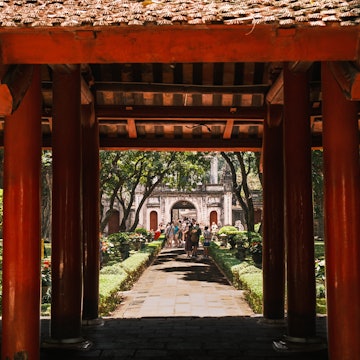
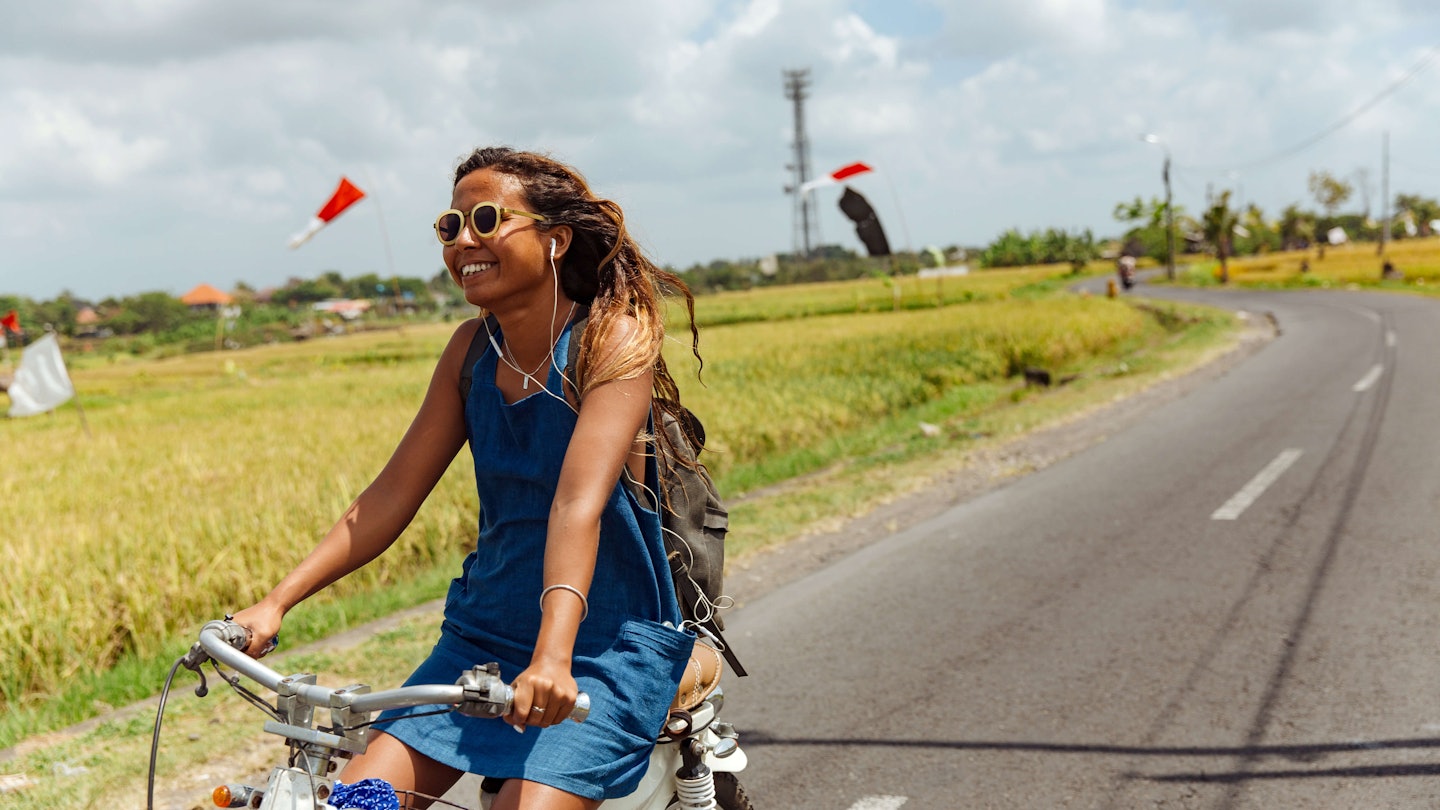
Use these top transportation tips to plan your travels around Bali. NyimasLaula/Getty Images
Bali is relatively small in size, but that doesn't mean it's easy to travel around. Public transport is erratic and traffic jams are common, especially in the densely populated southern and central parts of the island, which are the usual hangouts for travelers and tourists.
In outlying rural areas, the winding paddy field lanes and jagged chains of ridges and valleys make the island a pleasure to explore, but they also do a good job of slowing your pace. Bali is a place where it rarely pays to rush.
Here's our guide to getting around on the “island of the gods.”
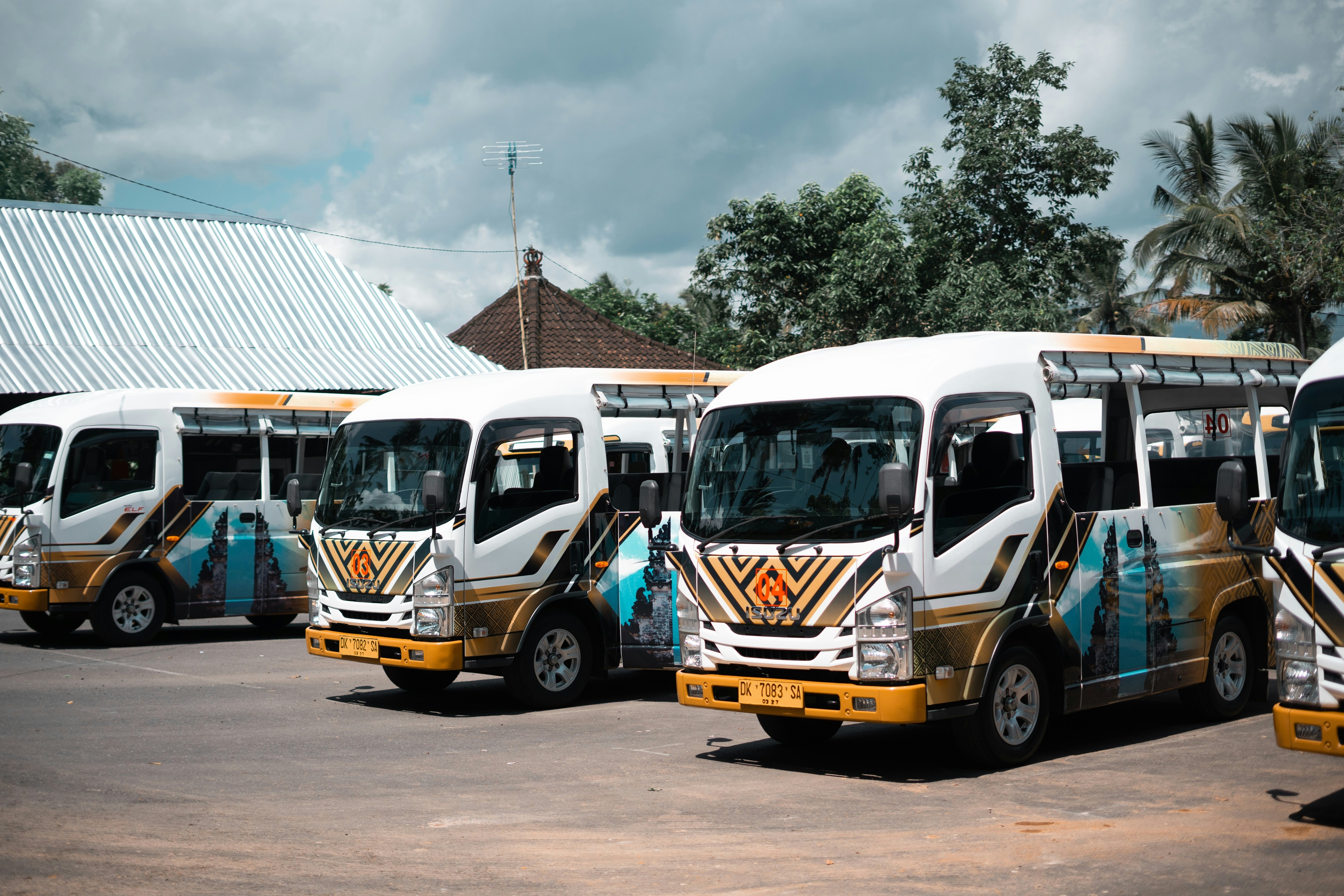
Take the bus like the locals
Unlike on neighboring Java, traveling by train is not an option in Bali. Public buses are the most common form of transport for islanders without their own wheels. Buses connect most Balinese towns, but if you are making a long journey across the island, you are likely to have to make several changes, and it can be time-consuming. The ubiquitous bemo (minibuses) are one of the cheapest transport options. Itineraries are rarely fixed, and schedules are erratic. Local folks can always tell you at what time the next bus is most likely to pass and where to wait.
Kura-Kura (which means "tortoise" in Indonesian) is a tourist-class bus service that operates a dozen routes around southern Bali and up to Ubud. You can buy a ticket via the Kura-Kura app or on the company’s website. It’s easy and convenient, and if you don’t mind waiting for the next scheduled stop, it can be a good way to get around.
Taxis are ideal for group travel
Low fuel prices (around 10,000Rp/$0.61 liter) mean that taxis are relatively inexpensive on Bali, and if you are traveling with friends and prefer not to drive, taxis are an ideal option. Bluebird Taxis has Indonesia’s biggest taxi fleet, and the company has a desk outside the arrivals section at Ngurah Rai International Airport. Prices are on the high side (relatively speaking), but the journey from the airport to your hotel is a fixed rate, so no need for a bout of jetlagged haggling. The MyBluebird Taxi app makes booking and tracking easier, too. You can also simply hail a Bluebird on the street and pay as normal on the meter.
Grab, the Singapore-based company that acquired Uber in Asia, is one of the best solutions to the problem of getting around Bali, and it’s often about half the price of metered taxis. Grab even has an air-conditioned lounge just outside arrivals at the airport where you can charge your phone and make a booking.
Grab and Maxim, the new kid on the block, are markedly cheaper than regular taxis and are entirely “democratic,” meaning that everybody – Balinese, Indonesian or foreign tourist – pays the same. Reassuring security aspects of the excellent Grab app include route tracking and an alert button that you can hit if you feel unsafe. Link the app to a credit card so that you don’t have to fiddle with cash or look for change on the street. A review feature allows riders to give a thumbs-up for your driver’s attitude, the cleanliness of the vehicle and even the music played.
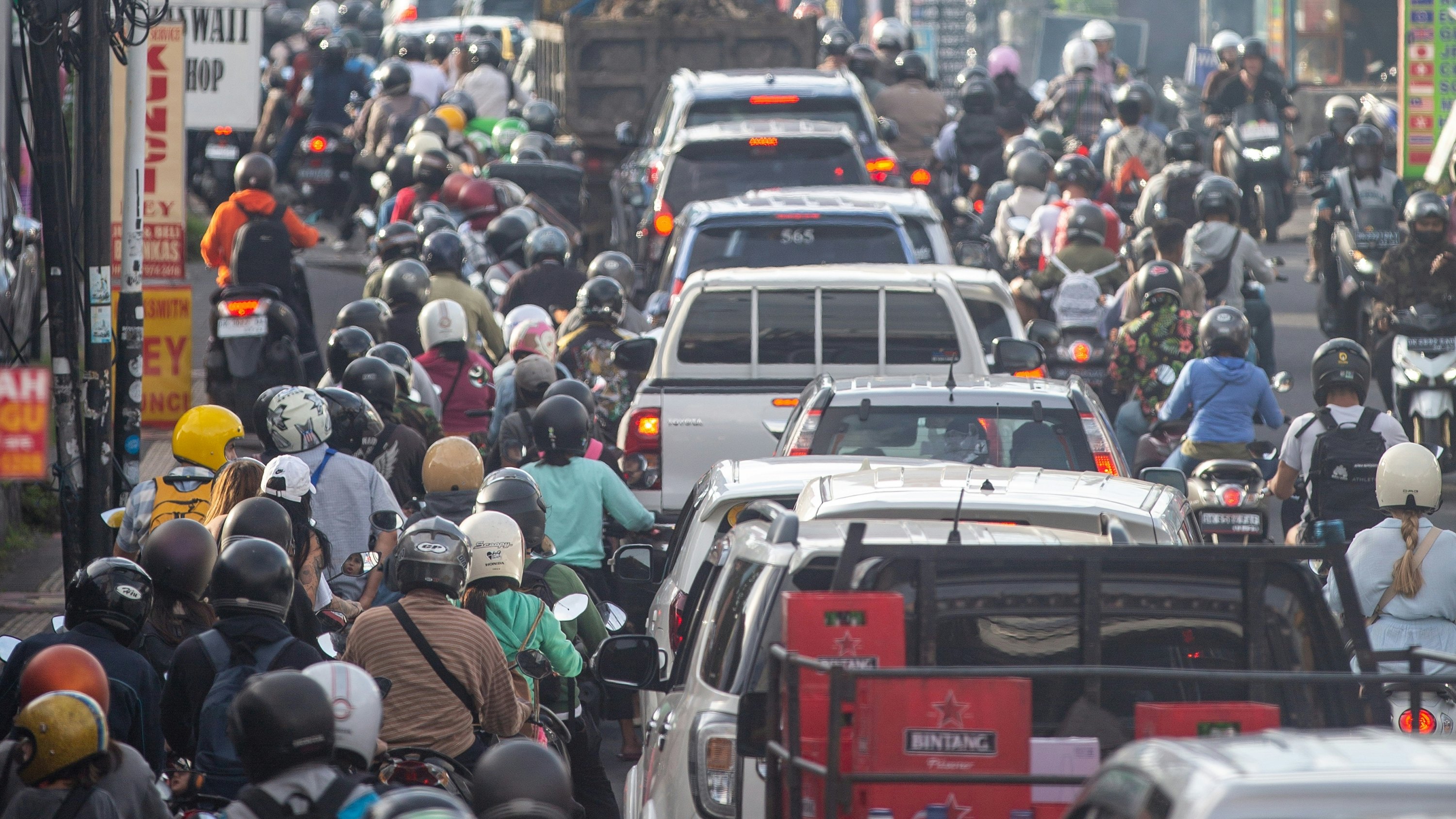
Use an app to hail a motorbike taxi
In the old days, unofficial motorbike taxis known as ojeks (often driven by young men hanging out on a street corner) were the standard method of getting around Bali’s towns. These days, apps such as Gojek and Grab make finding an ojek easier than ever.
If you are visiting an obscure address, simply drop a pin for your destination through the app, and there’s no need to enter into complex explanations with your rider. Taking a motorcycle taxi normally costs roughly half the price of a car. Drivers always carry a spare helmet for passengers. The app codes of conduct restrain their riders from the sort of reckless driving that was common among the daredevil ojek drivers of yesteryear. Same as booking a car taxi, prices are fixed and displayed before you confirm your booking.
Be aware that some villages in Bali refuse access to Grab and Gojek to protect the income of their own drivers. These roadblocks occasionally mean that you have to walk a short distance to your final destination.
Self-drive in a rental car, or hire a driver too
It’s easy to underestimate distances in Bali. A journey from the airport to the farthest western point of the island (Gilimanuk) is likely to take four hours – more at busy times – even though it is less than 140km (87 miles) away. Bali’s roads can be challenging. Potholes and extremely narrow lanes are only part of the problem, and the vast number of motorbikes means that you are perpetually driving in a buzzing swarm. The key to safe driving in Bali is to take it slow and easy and to “telegraph” every maneuver as early as possible. Last-minute swerves can result in disaster.
In Indonesia, all foreigners are required to carry their national driving license and an international license on them while driving any vehicle. Car rental starts from around 200,000Rp/$12 per day. Toyota Avanzas, which can seat seven people without baggage, are common, and Suzuki APVs vans are only slightly more expensive. Taking into account low fuel prices, this can be the most affordable way for a group to get around.
Your hotel or homestay can often recommend a reliable car rental company, but Bali Car Rental Cheap is also a good place to check prices. Most car rental places can also supply a driver, which costs around another 200,000Rp/$12 per day. If you are making multi-day trips, you will need to add on food and accommodation costs for the driver.
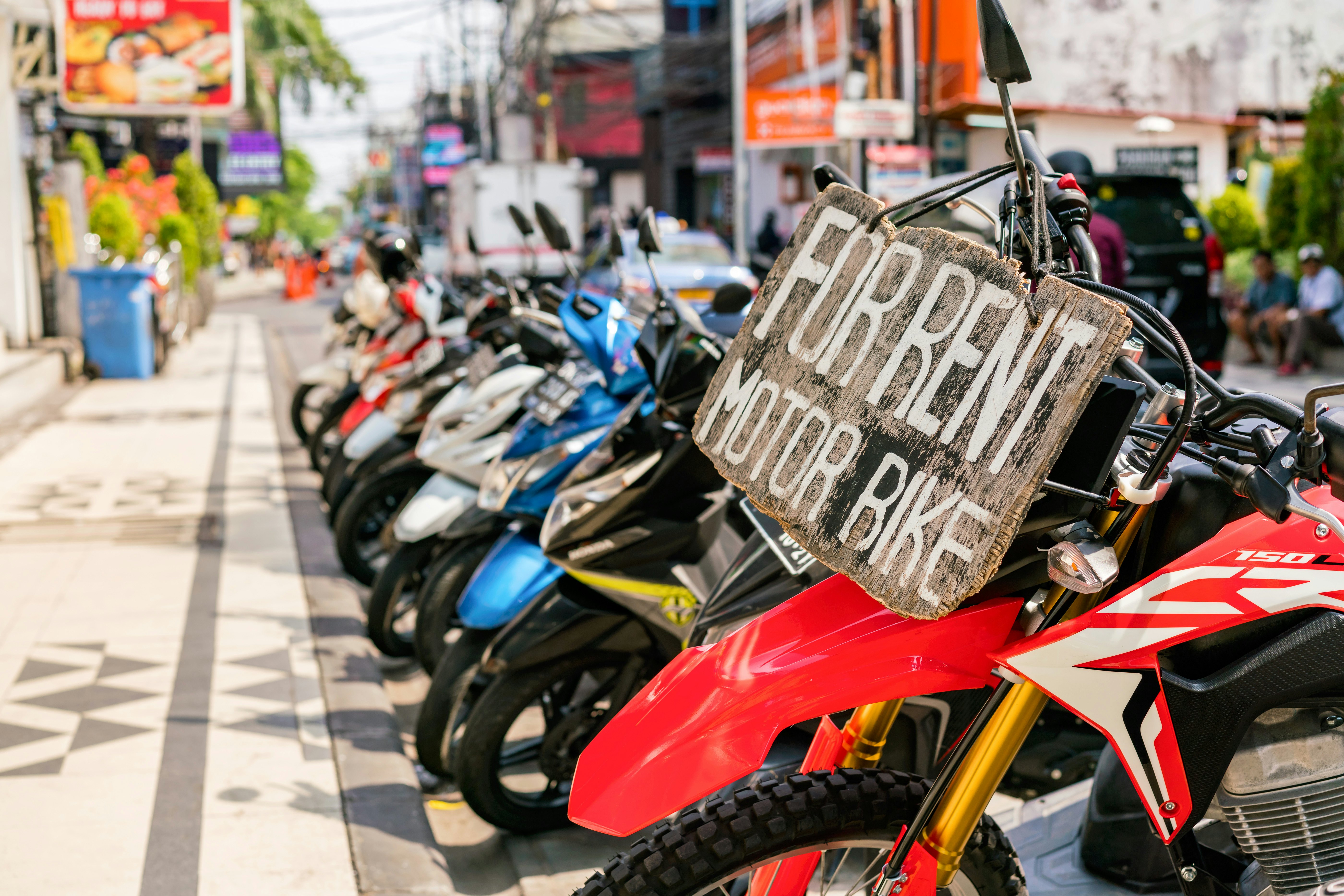
Motorbike and moped rental is cheap
Dollar for dollar, Bali must be one of the world’s cheapest places for motorbike rental. Expect to pay 80,000Rp/$48 a day for a decent 125cc automatic scooter, but for long-term rentals (two weeks or more), you can often haggle down. Motorbikes can be fitted with surfboard racks for a small additional charge.
Be aware that few rental dealers on the streets have insurance, and an accident could be expensive and stressful. Reputable companies that can offer insurance and on-the-road support in English include Bikago, which has a fleet of motorbikes up to 250cc. If you want to upgrade to an even bigger motorbike, check out Bali Bike House, which has a whole range of sports bikes along with gems such as a Harley Davidson Softail Classic, a Ducati Monster 795cc, or a Royal Enfield Classic 500cc.
While manual gear-change mopeds are still widely used, most rental scooters tend to be easy-to-ride automatics. Nevertheless, the busy roads of southern and central Bali are far from ideal places for inexperienced drivers to hone their skills. Overconfidence on the part of a tourist is often paid for with grazes and scars – and sometimes worse. It’s best to wear protective clothing and a helmet.
Accessible transportation is limited in Bali
For travelers with disabilities and mobility needs, Bali can be challenging. Even in the more developed tourist towns, such as Kuta, Ubud, Canggu and Seminyak, sidewalks are often poorly maintained, and roads are narrow. Access to many of the main sights has been improved, with the addition of wheelchair ramps at the most famous temples and priority access for people with mobility requirements. Most of Ubud Monkey Forest, Tirta Gangga temple, the lovely Pura Tirta Empul water temple and even parts of the trails through Jatiluwih paddy fields are accessible to wheelchairs.
Bali Access Travel specializes in assisting travelers with partial or zero mobility, arranging everything from accommodations, airport transfers, equipment rental, transportation, tours and experiences. Accessible Indonesia runs tours in Java and Sulawesi and Bali, and it can arrange tailor-made trips.








